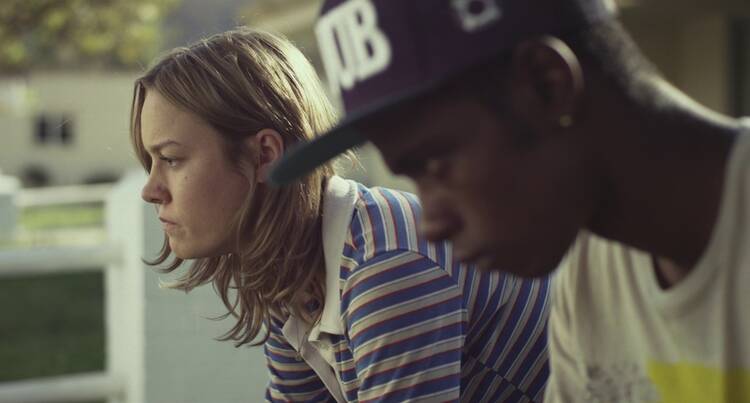The Catholic Movie Club is a short weekly essay pulling out spiritual themes in our favorite films. You can discuss the movies with other readers in the comments on this page or in our Facebook group. Find past Catholic Movie Club selections here.
“Hurt people hurt people,” the saying goes. It’s a pithy summation of the cycle of violence, humanity’s tragic tendency to perpetuate our traumas across relationships and generations.
But hurt people can also help people. Many of my friends in counseling and social work entered those fields because they benefited from those services themselves. They know firsthand the importance of having people you can trust and they want to be that for others.
‘How can we put our woundedness in the service of others?’ This film provides one answer.
Grace (Brie Larson), the protagonist of “Short Term 12”(2013), is one of those people. She’s a line staff supervisor at a group home for at-risk teens (the film is based on writer/director Destin Daniel Cretton’s experiences working with a similar program). Grace spends her days running group sessions, checking rooms for contraband and—not infrequently—chasing down a resident who’s trying to flee the grounds. She’s firm, but also enjoys an easy rapport with the kids under her charge. Even as she works to help those kids open up, she’s very guarded in her personal life, holding even her boyfriend/co-worker Mason (John Gallagher, Jr.) at arm’s length. But when Jayden (Kaitlyn Dever), a prickly new resident, arrives, Grace has to confront her own traumatic past if she wants to help Jayden and move forward.
In his spiritual classic, The Wounded Healer: Ministry in Contemporary Society, Henri Nouwen asked: “Who can take away suffering without entering it?” For Nouwen, the wounded healer is one who can make their own experience of suffering “a source of healing”: “Jesus is God's wounded healer: through his wounds we are healed…. As followers of Jesus we can also allow our wounds to bring healing to others.”
Grace embodies this archetype: She’s a survivor of childhood abuse, and bears the literal and metaphorical scars. That experience made her harder, in some ways: wary of others, afraid of connection. But it also fuels her work and gives her the credibility and insight to form relationships with her teenage residents. In those relationships, shared brokenness becomes a space for healing. She’s not a savior, or even a therapist; as she tells new staffer Nate (Rami Malek): “You’re here to create a safe environment and that’s it.” But for those kids, a safe environment can be life-changing. Because of her woundedness, Grace can provide one.
Not everyone can do the work Grace does, but all of us have the potential to be wounded healers. Nouwen wrote: “We all are wounded people. The main question is not ‘How can we hide our wounds?’ so we don't have to be embarrassed, but ‘How can we put our woundedness in the service of others?’” Grace has found her answer. What is ours?
“Short Term 12” is streaming on Peacock and is available to rent on Apple TV, Amazon Prime and other services.








